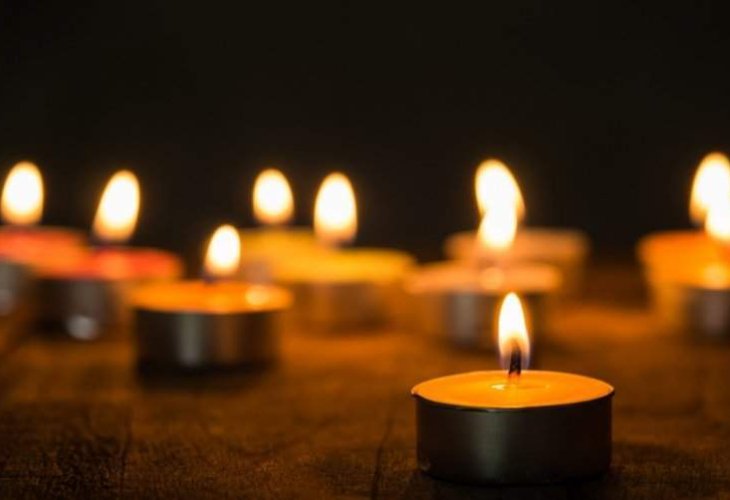Jewish Holidays & Festivals
Mourning Laws Around the Festivals: A Beginner’s Guide
No mourning is permitted on festivals, so what happens if a close relative passes away before one of the Yomim Tovim?
 (Photo: shutterstock)
(Photo: shutterstock)Jewish mourning has specific stages: shivah (seven days), sheloshim (thirty days), and, in the case of a parent, a full year. But what happens when one of the festivals — Pesach, Shavuot, Sukkot, Rosh Hashanah, or Yom Kippur — falls during these periods? The Torah places the joy of the holidays above personal mourning, and this has important effects on the laws of aveilut (mourning).
Below is a practical Q&A guide.
When a Close Relative Passes Away
Q: If I lost a brother, sister, son, daughter, husband, or wife and I’m sitting shivah, what happens when a holiday comes?
A: The festival ends the shivah. Not only that, it also cancels the rest of the sheloshim (the thirty days). You may cut your hair and nails before the holiday begins.
When a Parent Passes Away
Q: Does the same rule apply if I lost a parent?
A: No. The Torah requires extra mourning for a parent. You may trim your nails before the holiday, but you may not cut your hair until thirty days have passed and people tell you, “It’s time to get a haircut.” Even if several festivals pass during those thirty days, the haircut restriction remains.
Q: What about shaving my beard before the holiday?
A: Normally, this is also forbidden. However, if someone is greatly embarrassed — such as a public figure leading services — they may shave their beard before the holiday, because of kavod habriyot (human dignity).
Mourning Close to the High Holidays
Q: What if my relative was buried right before Rosh Hashanah?
A: If you are mourning a relative other than a parent, Rosh Hashanah ends your shivah. Yom Kippur then ends your sheloshim. You may cut your hair before Yom Kippur.
Q: And if the burial was right before Yom Kippur?
A: Yom Kippur ends your shivah, and Sukkot ends your sheloshim. You may cut your hair before Sukkot.
The Seventh Day Counts for Both
Q: If the seventh day of shivah falls on the eve of a festival, do I have to continue mourning after the holiday?
A: No. Since part of the seventh day counts as a full day (miktzat hayom kekulo), the festival cancels the remaining sheloshim. You may cut your hair before the holiday.
For example:
If burial was on the Fast of Gedaliah (3 Tishrei), the seventh day is Erev Yom Kippur. You may cut your hair before Yom Kippur.
If burial was on 8 Nisan, the seventh day is Erev Pesach. You may cut your hair before Pesach.
If burial was on 28 Iyar, the seventh day is Erev Shavuot. You may cut your hair before Shavuot.
If the Thirtieth Day Falls on the Festival
Q: What if the thirtieth day of mourning for a parent is during Chol Hamoed?
A: You may and should cut your hair during the festival after others tell you it’s time, since honoring the festival by appearing neat overrides mourning.
Q: What if people only urged me during Chol Hamoed, not before?
A: That is also valid — you may cut your hair during the festival itself.
The Memorial Meal (Azkarah) and Visiting the Grave
Q: If the festival cancels the sheloshim, when do I hold the thirtieth-day memorial (azkarah)?
A: Still on the actual thirtieth day, even if it falls during Chol Hamoed.
Q: May I visit the grave on the thirtieth day if it’s during the festival?
A: No. Visiting a grave awakens grief and crying, which is not allowed during the festival. Wait until after.
How the Thirty Days Are Counted
Q: If my relative passed away right before a holiday, do I still need a full thirty days?
A: For most relatives, the holiday shortens the count. The holiday itself counts as seven days, plus the seven days of shivah, so you only need to complete the remaining days.
For example:
If burial was before Pesach, Pesach counts as seven days; add the seven of shivah — that’s fourteen. You only need sixteen more.
If burial was before Shavuot, Shavuot counts as seven days like Pesach. You only need sixteen more.
If burial was before Sukkot, Sukkot plus Shemini Atzeret and Simchat Torah count as two separate “sevens.” You already have twenty-one days, so you need just nine more.
Important: This shortening only applies for relatives other than a parent. For a parent, you must always keep a full thirty days, no matter how many holidays intervene.
Key Takeaways
Holidays cancel mourning because public joy overrides private grief.
For relatives other than parents: the holiday ends both shivah and sheloshim.
For parents: extra restrictions remain — especially haircuts — until thirty full days and after others urge you.
Memorial meals are still held on the thirtieth day, even if during the festival.
Visiting graves is not done during Chol Hamoed.

